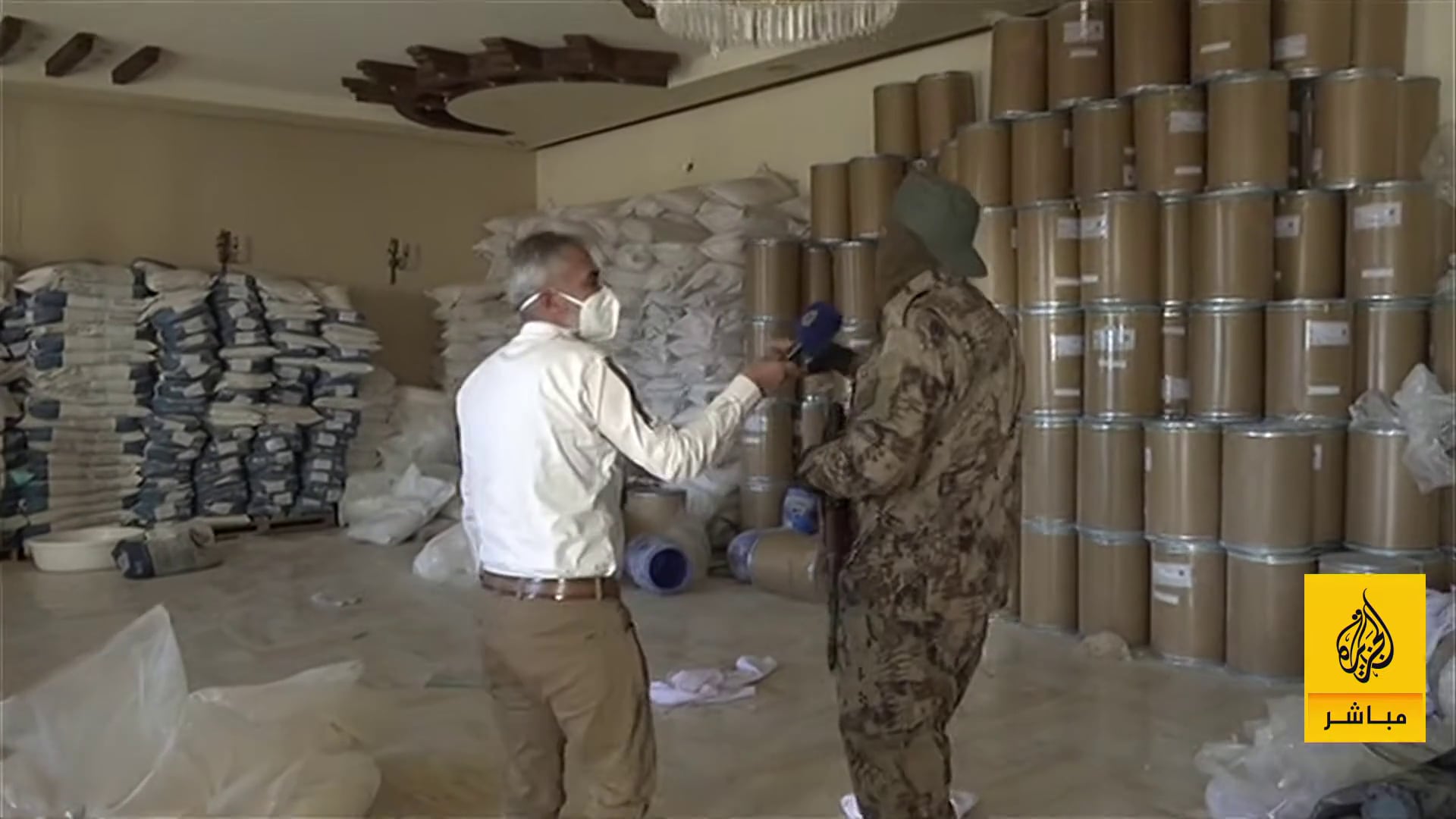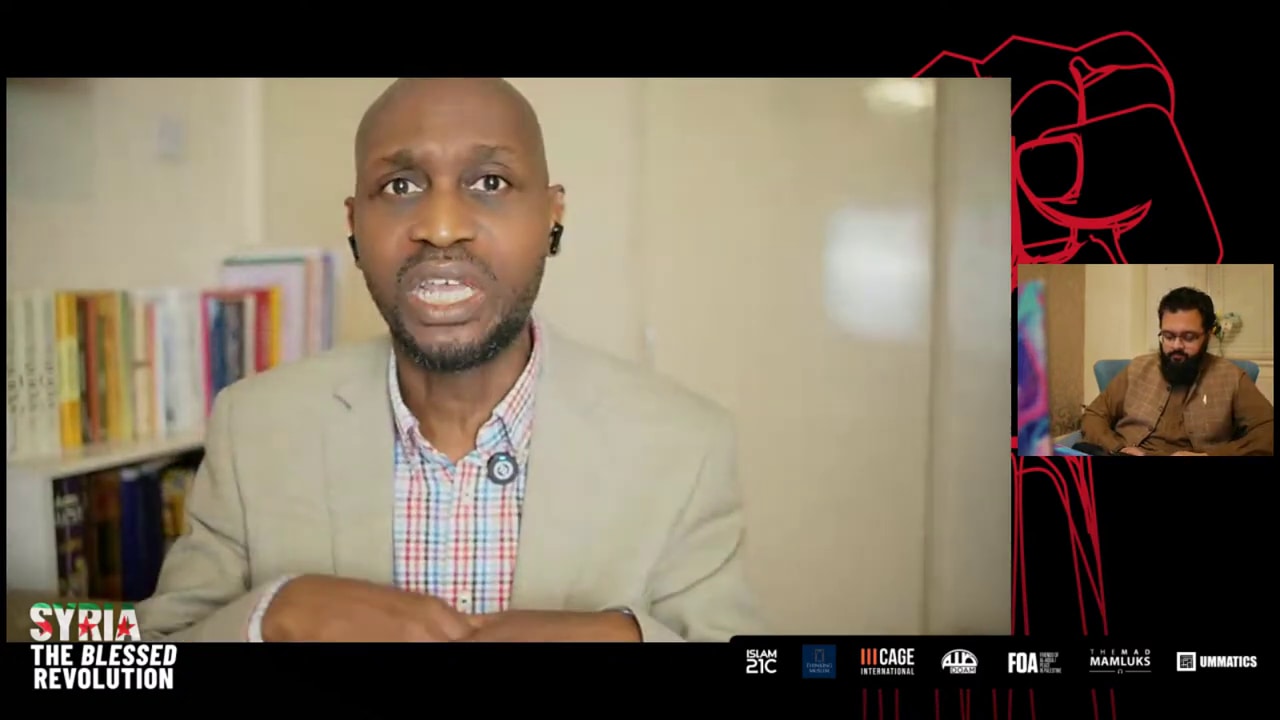
On December 15, 2024, Al Jazeera Network (Qatar) aired a report on one of the Al-Assad regime’s narcotics production sites. The reporter was guided by a masked militant through a factory located in a large private home, where captagon pills were being manufactured. The pills were concealed inside mothballs, with each mothball containing four pills, each valued at three dollars. These narcotics were being exported to countries including Jordan, Lebanon, and the Gulf states. For more, see MEMRI JTTM report A Look Into The Illicit Captagon Trade In Syria: Assad Regime, Iran-Backed Militias Produce, Sell, And Smuggle Drugs Through Mediterranean-Gulf Region To Europe.
Reporter: "This villa, or this house, is one of the captagon factories of the 'fleeing regime,' here in the Al-Dimas area. Let us go inside, and see how these factories operated."
[...]
Militant: "This factory produced captagon narcotic pills. They had three types of products. The first looked like medicinal pills [filled with] powder. The second product was sleeping pills. The third type, which was ready for export, looks like plastic naphthalene capsules, and when you open them, you find four captagon pills inside. These pills were ready to be exported abroad."
Reporter: "Shall we go inside?"
Militant: "Let's go."
Reporter: "Dear viewers, this is one of the captagon factories. What are these bags?"
Militant: "These bags contain the raw material for the production of captagon narcotic pills. We asked for a medical committee from the new salvation government to come here. They came here and found these substances. These are medicinal substances. This, for example, is caffeine. All these are made in India."
Reporter: "Is this how you open it?"
Militant: "These are all sealed."
Reporter: "Okay, is this one open? Let's see it. What is this?"
Militant: "This is caffeine."
Reporter: "Caffeine. Open it will you? This is caffeine..."
Militant: "Yes, caffeine."
Reporter: "Is it used to make medicine?"
Militant: "Yes, these are raw materials for the production of medicine for human consumption. There are narcotic materials inside, and they would mix them with these substances, to turn them into addictive narcotic pills."
Reporter: "What are these?"
Militant: "These bags contain medicine. We do not know exactly what type. We tried to read what's written here. We only found out their origin. Most of the substances here were made in Poland and India."
Reporter: "And what is this? Is this a mixer?"
Militant: "Yes, this is the mixer, where you put all the ingredients. The main factory is inside."
Reporter: "Are there any pills here that we can see?"
Militant: "Not here. All you have here are the raw materials and the mixers. These are just mixers. They pour the materials inside, mix them, and then take them inside to the other factory."
Reporter: "Here are the materials, and here are the machines. These are all mixers. Here are the materials. It seems to be a complete factory – that is, in terms of equipment, raw materials... Are these pills, or what?"
Militant: "This is the main product here. These are the naphthalene capsules I told you about. This is a plastic capsule, and when you open it... If you could come here with me. This one is still closed. It might be empty. These are the captagon pills."
Reporter: "Inside?"
Militant: "Yes. It was about to be exported abroad – to Jordan, the Gulf countries, Lebanon, and the rest of the world. You put it this way."
Reporter: "Do you close it?"
Militant: "Yes, and this is what it looks like."
Reporter: "Why do they put it that way?"
Militant: "In order to make it easy to export and to smuggle. It contains four pills, and as we were told by the people who used to work here, one pill is worth three dollars."
Reporter: "Three dollars?"
Militant: "Yes, each pill."
Reporter: "So they put four pills in each one of these."













